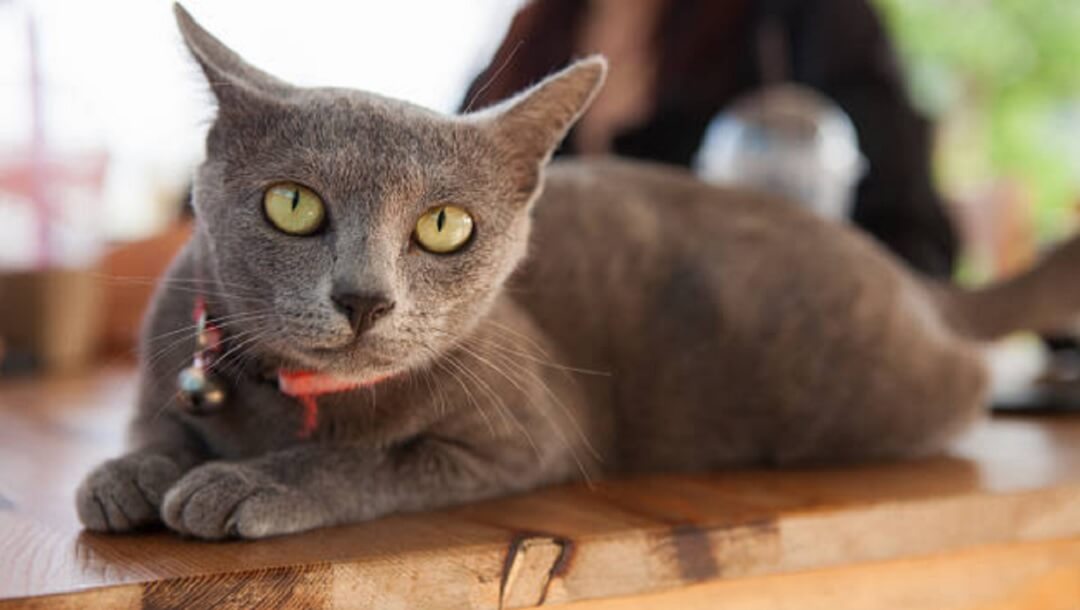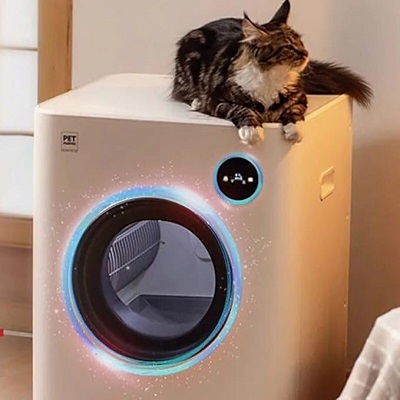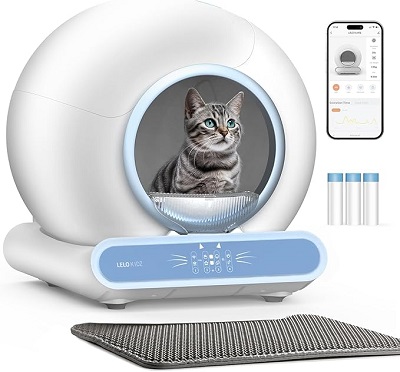
Korat Cat: The Silver-Hued Beauty with a Heart of Gold
The Korat cat is a stunning breed with a history that stretches back hundreds of years in Thailand. Known for its beautiful silver-blue coat and vibrant green eyes, the Korat is often referred to as the "good luck cat" and is considered a symbol of prosperity in its native land. Beyond its captivating appearance, the Korat is known for its affectionate and loyal personality, making it a wonderful companion for those who appreciate an intelligent, playful, and gentle pet.
In this article, we’ll delve into the history, appearance, personality, care needs, and health considerations of the Korat cat, and offer practical tips on how to care for this unique and charming breed.
History of the Korat Cat
The Korat cat is one of the oldest and most revered breeds in Thailand, where it is known as the "Si-Sawat" cat. This breed has a rich history and is often depicted in Thai art, symbolizing good fortune and happiness. Korats were traditionally given as gifts to important people, and they were particularly prized as symbols of prosperity and good health.
The breed’s name, "Korat," comes from the Korat region in Thailand, which is said to be the origin of the breed. While Korats have been part of Thai culture for centuries, the breed was first recognized outside of Thailand in the 1950s. It was in the United States that the Korat gained widespread recognition, and it was officially recognized by The International Cat Association (TICA) in 1965.
Due to its rarity, the Korat is still considered an exotic breed, though it has grown in popularity among cat lovers worldwide.
Appearance of the Korat Cat
The Korat cat is famous for its striking silver-blue coat, which gives it a mystical and elegant look. Here’s a closer look at its key physical features:
-
Coat and Color:
The Korat has a short, single-layer coat that is smooth, fine, and soft to the touch. Its most distinctive feature is its silver-blue coloring, which is achieved by each hair having a silvery tip. This gives the cat a shimmering, almost metallic look. The breed's coat color can range from a soft blue-gray to a more silvery tone, but the overall effect is always striking and elegant.The Korat’s coat is solid and without markings, except for a slight silver sheen that becomes more pronounced in sunlight. This gives the breed a uniform and sleek appearance. The Korat is also known for its round face and large eyes, which are usually a vibrant green. Their eyes are one of the breed’s most captivating features, and they are known to glow with an almost jewel-like intensity.
-
Size and Build:
Korats are medium-sized cats with a muscular but compact build. They have a graceful, athletic appearance, with strong legs and a short, tail that tapers slightly at the end. Males typically weigh between 8 and 10 pounds, while females tend to be slightly smaller. Despite their smaller size, Korats are well-built cats with a muscular frame that gives them agility and strength. -
Head and Ears:
The Korat’s head is heart-shaped with a rounded forehead and slightly pointed chin. Their large, expressive ears are one of the breed’s defining characteristics. The ears are medium-sized, wide at the base, and slightly rounded at the tips. The combination of a heart-shaped head, large ears, and wide-set eyes gives the Korat its alert and intelligent expression.
Personality of the Korat Cat
The Korat cat is known for its affectionate, loyal, and social personality. Here’s what you can expect from this unique and loving breed:
-
Affectionate and Bonded:
Korats are very loyal to their owners and form strong emotional bonds with their human companions. They enjoy being close to their family members and will often follow you from room to room. Korats are particularly known for their desire to sit on laps and cuddle, making them ideal companions for those who are looking for a cat that craves affection. -
Intelligent and Curious:
Korats are incredibly intelligent cats, known for their problem-solving abilities and curiosity. They are always looking for new things to explore, and their inquisitive nature often leads them to investigate every corner of their home. Korats are also very trainable and can learn tricks or respond to commands, such as sitting on command or fetching toys. Their sharp minds make them great at playing interactive games and puzzle toys. -
Playful and Active:
Although they are calm and affectionate, Korats are also quite playful and active. They enjoy interactive playtime, such as chasing toys, playing with feather wands, or engaging in games of fetch. Korats tend to be more active in the evening or during cooler parts of the day, and they love climbing and exploring high spaces. Providing them with climbing structures and cat trees can help keep them engaged and entertained. -
Good with Children and Other Pets:
Korats are known to be gentle and tolerant, making them great companions for families, including those with children. Their playful nature allows them to engage with kids in a friendly manner, and their patient temperament helps them handle the noise and excitement of younger family members. Korats are also typically good with other pets, including other cats and dogs, though early socialization is always a good idea.
Grooming and Care
The Korat cat is relatively low-maintenance when it comes to grooming, thanks to its short, smooth coat. However, a little care is still necessary to keep your Korat looking its best:
-
Brushing:
While the Korat's short coat doesn’t mat easily, regular brushing is still recommended to remove any loose hairs and to keep the coat looking sleek and shiny. Brushing once a week is typically sufficient to maintain its healthy appearance. -
Nail Trimming:
Regular nail trimming is important for all cats, including the Korat. Trim the nails every couple of weeks to prevent overgrowth and to avoid scratching damage to furniture or skin. -
Ear and Dental Care:
Korats have relatively clean ears, but it’s always a good idea to check them regularly for dirt or wax buildup. Use a cat-safe ear cleaner and a soft cloth to gently clean the ears if needed. Korats are also prone to dental issues, so regular teeth brushing and providing dental treats can help prevent tartar buildup. -
Exercise and Enrichment:
Korats are an active breed, so it’s important to provide plenty of opportunities for physical exercise and mental stimulation. Play interactive games, give them climbing opportunities, and provide puzzle toys to keep them engaged and prevent boredom.
Health and Lifespan
The Korat is generally a healthy breed, but like all cats, they are prone to certain health concerns. With proper care and regular veterinary visits, Korats can live long, happy lives.
-
Health Concerns:
-
Heart Disease: Korats are genetically predisposed to hypertrophic cardiomyopathy (HCM), a heart condition that affects the heart muscles. Regular veterinary checkups and early detection can help manage the condition.
-
Dental Issues: As with many cat breeds, Korats can suffer from dental problems, including gingivitis and tartar buildup. Maintaining regular dental hygiene is crucial.
-
-
Lifespan:
Korats are known for their longevity and can live anywhere from 12 to 20 years, provided they receive proper care, including a balanced diet, regular exercise, and routine veterinary care.
Conclusion
The Korat cat is an intelligent, affectionate, and active breed that makes an excellent companion for those seeking a loyal and loving pet. With its striking silver-blue coat, vibrant green eyes, and gentle temperament, the Korat is a breed that will capture your heart and keep you entertained for years. Whether you’re looking for a playful family companion or a quiet, devoted pet, the Korat is sure to bring good fortune and joy into your life.
Affiliate Products
We may earn a small commission when you shop through our links — it helps us keep sharing love and care for every dog out there, at no extra cost to you.
Up to 75% Discount

Cat Sandbox Automatic Collector
BUY NOW »
Up to 55% Discount

Self Cleaning Litter Box
BUY NOW »


